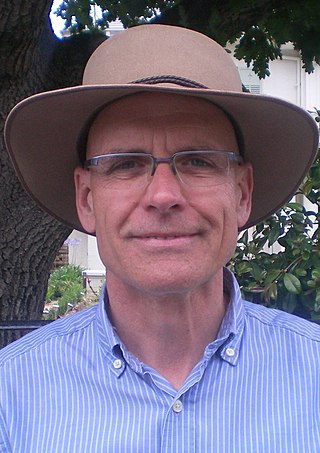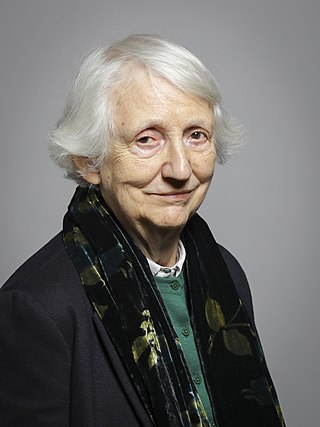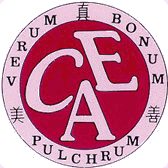Related Research Articles
Applied ethics refers to the practical aspect of moral considerations. It is ethics with respect to real-world actions and their moral considerations in the areas of private and public life, the professions, health, technology, law, and leadership. For example, the bioethics community is concerned with identifying the correct approach to moral issues in the life sciences, such as euthanasia, the allocation of scarce health resources, or the use of human embryos in research. Environmental ethics is concerned with ecological issues such as the responsibility of government and corporations to clean up pollution. Business ethics includes questions regarding the duties or duty of 'whistleblowers' to the general public or their loyalty to their employers.

Charles Napier Sturt was a British officer and explorer of Australia, and part of the European exploration of Australia. He led several expeditions into the interior of the continent, starting from Sydney and later from Adelaide. His expeditions traced several of the westward-flowing rivers, establishing that they all merged into the Murray River, which flows into the Southern Ocean. He was searching to prove his own passionately held belief that an "inland sea" was located at the centre of the continent. He reached the rank of Captain, served in several appointed posts, and on the Legislative Council.

Clive Charles Hamilton AM FRSA is an Australian public intellectual and Professor of Public Ethics at the Centre for Applied Philosophy and Public Ethics (CAPPE) and the Vice-Chancellor's Chair in Public Ethics at Charles Sturt University. He is a member of the Board of the Climate Change Authority of the Australian Government, and is the Founder and former Executive Director of The Australia Institute. He regularly appears in the Australian media and contributes to public policy debates. Hamilton was granted the award of Member of the Order of Australia on 8 June 2009 for "service to public debate and policy development, particularly in the fields of climate change, sustainability and societal trends".

Onora Sylvia O'Neill, Baroness O'Neill of Bengarve, is a British philosopher and a crossbench member of the House of Lords.

Charles Sturt University is an Australian multi-campus public university located in New South Wales, Australian Capital Territory and Victoria. Established in 1989, it was named in honour of Captain Charles Napier Sturt, a British explorer who made expeditions into regional New South Wales and South Australia.
The Centre for Human Bioethics is the previous name of a research and teaching centre at Monash University, based in the Faculty of Arts. The Centre is now known as the Monash Bioethics Centre. It focusses on the branch of ethics known as bioethics, a field relating to biological science and medicine. It was founded in October 1980 by Professors Peter Singer and Helga Kuhse, as the first centre in Australia devoted to bioethics, and one of the first in the world.
CAPPE or variation, may refer to:
Cecil Anthony John Coady, more commonly publishing as C. A. J. Coady and less formally known as Tony Coady, is a prominent Australian philosopher with an international reputation for his research, particularly in epistemology but also in political and applied philosophy. Coady's best-known work relates to the epistemological problems posed by testimony, most fully expounded in his book Testimony: a Philosophical Study. It was influential in establishing a new branch of inquiry within the field of epistemology. He is also well known for his publications on issues related to political violence. Coady is a regular commentator in the Australian media on philosophical aspects of public affairs.

Centre for Applied Ethics (CAE) at Hong Kong Baptist University was founded in 1992. It is the first of its kind established in China and one of the earliest in Asia. The Centre strives to stimulate critical reasoning about fundamental ethical concerns in contemporary society, to raise awareness of moral values, and to further strengthen the University's commitment to research and whole person education. To accomplish its mission, the Centre has been active in organizing various academic activities, publishing research results in different fields of Applied Ethics and developing a co-operation network with other institutions.
John Weckert is an Australian philosopher who has been an influential figure in, and substantial contributor to the field of information and computer ethics. He has published many books and journal articles outlining his research in this field.
Thomas (Tom) Douglas Campbell (1938–2019) was a Scottish philosopher and jurist. He held academic positions in Scotland and Australia, and was a professorial fellow of the Centre for Applied Philosophy and Public Ethics (CAPPE) in Canberra.
Res publica is a Latin phrase meaning "public issue" or "public matter".
Emma Rush is a lecturer in philosophy and ethics at Charles Sturt University Faculty of Arts, School of Humanities and Social Sciences, notable for her work on sexualisation of children.
John Hadley is an Australian philosopher whose research concerns moral and political philosophy, including animal ethics, environmental ethics, and metaethics. He is currently a senior lecturer in philosophy in the School of Humanities and Communication Arts at Western Sydney University. He has previously taught at Charles Sturt University and the University of Sydney, where he studied as an undergraduate and doctoral candidate. In addition to a variety of articles in peer-reviewed journals and edited collections, he is the author of the 2015 monograph Animal Property Rights and the 2019 monograph Animal Neopragmatism. He is also the co-editor, with Elisa Aaltola, of the 2015 collection Animal Ethics and Philosophy.
Adrian J. Walsh is an Australian philosopher and Professor of Philosophy at the University of New England (Australia). He is known for his expertise on political philosophy, philosophy of economics and applied ethics. Walsh is an Associate Editor of the Journal of Applied Philosophy.
The Centre for Applied Philosophy, Politics and Ethics (CAPPE) is a research center at the University of Brighton. The Centre is under the directorship of Bob Brecher and Mark Devenney. It "researches the links between philosophy, critical theory, global ethics, other disciplines and the wider public."

Óscar Horta Álvarez is a Spanish animal activist and moral philosopher who is currently a professor in the Department of Philosophy and Anthropology at the University of Santiago de Compostela (USC) and one of the co-founders of the organization Animal Ethics. He is known for his work in animal ethics, especially around the problem of wild animal suffering. He has also worked on the concept of speciesism and on the clarification of the arguments for the moral consideration of nonhuman animals. In 2022, Horta published his first book in English, Making a Stand for Animals.

Holly Lawford-Smith is a philosopher, scholar, researcher, author and Associate Professor in Political Philosophy, University of Melbourne.
References
- ↑ "Publications: Res Publica, past issues". cappe.edu.au. CAPPE. Archived from the original on 21 August 2017. Retrieved 20 August 2017.
This article needs additional citations for verification .(December 2007) |